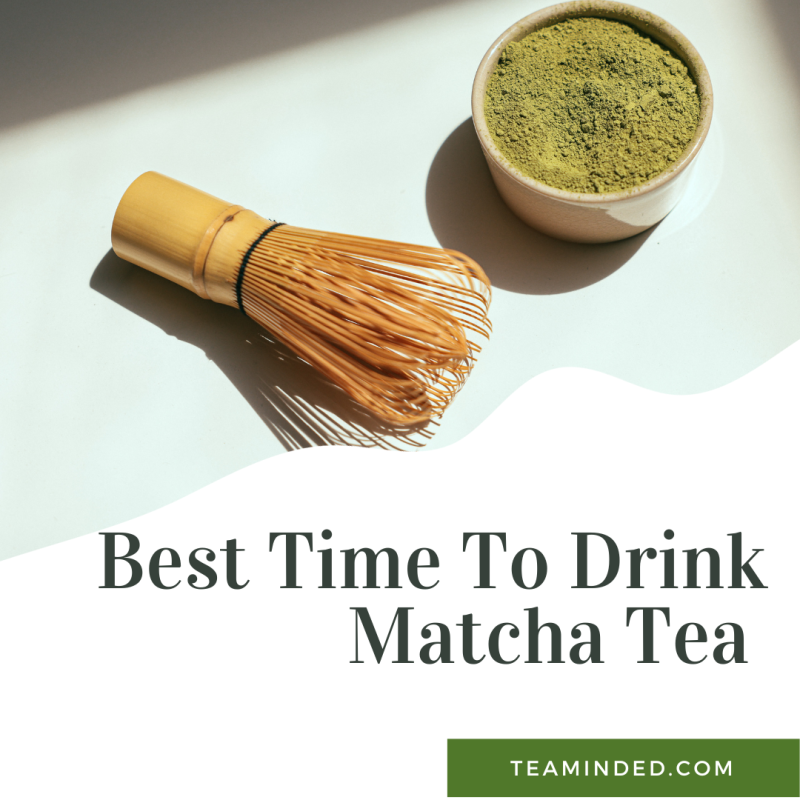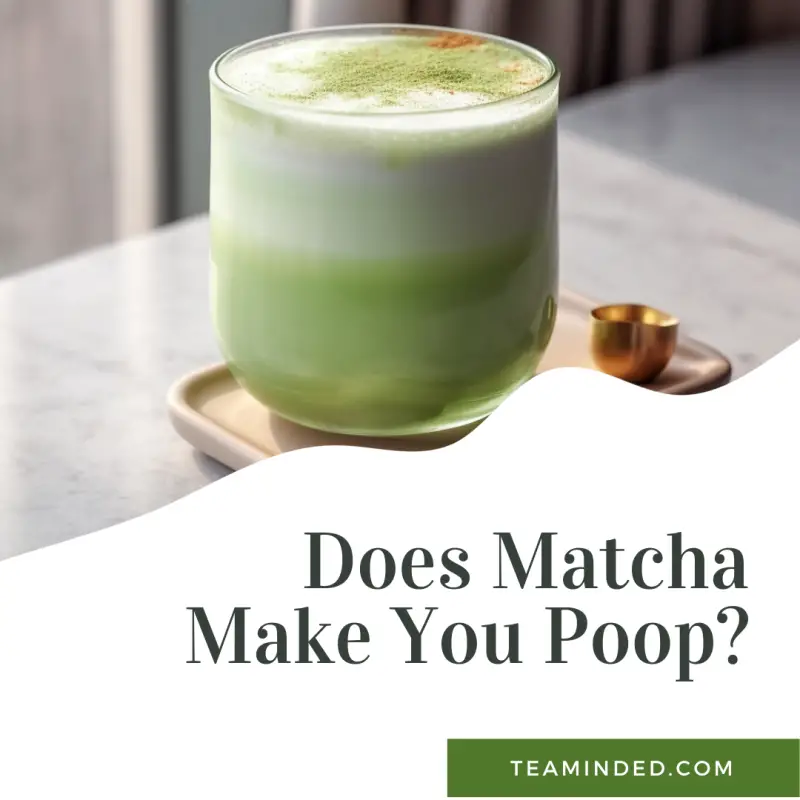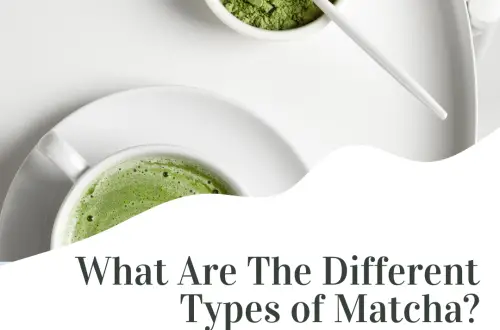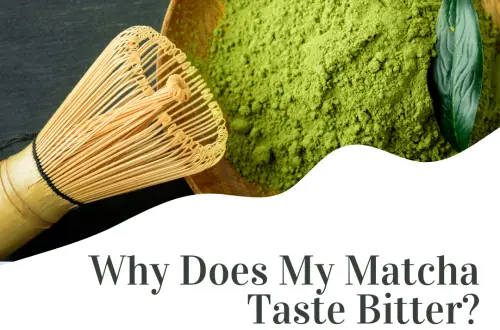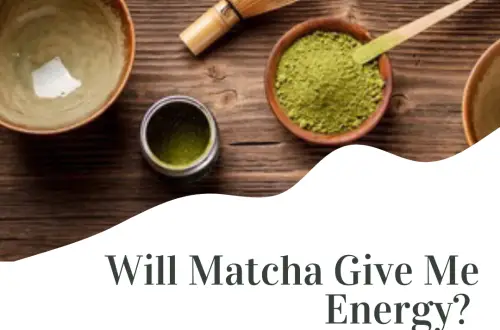If you’re looking for a caffeine boost that’s healthier than coffee, matcha tea may be a great option. Matcha is a type of green tea that’s been consumed in Japan for centuries. It’s made by grinding green tea leaves into a fine powder, which is then whisked with hot water to create a frothy, bright green tea. Matcha tea is known for its potential health benefits, including its high concentration of antioxidants and ability to boost metabolism.
But when is the best time to drink matcha tea? The answer depends on your goals. If you’re looking for an energy boost, drinking matcha tea in the morning can provide a much-needed jolt without the jitters or crashes often associated with coffee. On the other hand, if you’re looking for a calming effect, drinking matcha tea before bed may help you relax and fall asleep more easily. In this article, we’ll explore the optimal timing for matcha consumption and answer some frequently asked questions about matcha tea.
Quick Navigation
Key Takeaways
- Matcha tea is a type of green tea that’s been consumed in Japan for centuries and is known for its potential health benefits.
- The best time to drink matcha tea depends on your goals. Drinking matcha tea in the morning can provide an energy boost, while drinking it before bed may help you relax and fall asleep more easily.
- In this article, we’ll explore the optimal timing for matcha consumption and answer some frequently asked questions about matcha tea.
Understanding Matcha
Matcha is a type of powdered green tea that is highly valued for its unique taste, vibrant green color, and numerous health benefits. In this section, you will learn more about the origins of matcha, its health benefits, and the caffeine content in matcha.
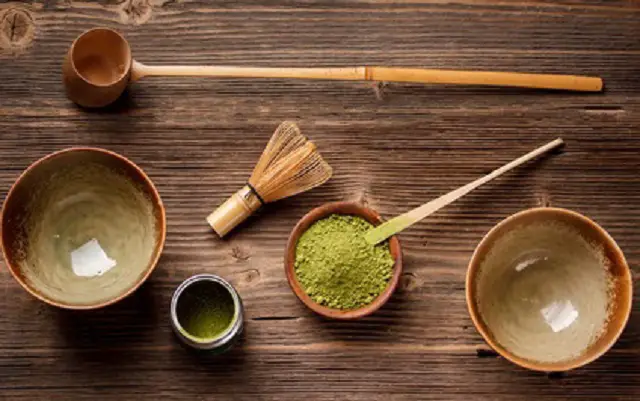
Origins of Matcha
Matcha originated in China during the Tang Dynasty (618-907), but it was not until the 12th century that it was introduced to Japan by the Buddhist monk Eisai. The Japanese have since developed their own unique way of growing, processing, and preparing matcha, which has become an integral part of Japanese culture.
Matcha is made from shade-grown tea leaves that are carefully harvested, steamed, dried, and ground into a fine powder. This process helps to preserve the delicate flavor and nutrients of the tea leaves, resulting in a vibrant green powder that is packed with antioxidants, vitamins, and minerals.
Health Benefits
Matcha is known for its numerous health benefits, which include boosting energy levels, enhancing mental clarity, reducing stress and anxiety, and promoting overall health and well-being. Some of the key health benefits of matcha are:
- High in antioxidants: Matcha is packed with antioxidants, which help to protect your body against free radicals and oxidative stress.
- Boosts energy levels: Matcha contains caffeine and L-theanine, which work together to provide a sustained energy boost without the jitters or crashes associated with coffee.
- Enhances mental clarity: Matcha contains L-theanine, which has been shown to improve mental clarity, focus, and concentration.
- Reduces stress and anxiety: Matcha contains L-theanine, which has been shown to reduce stress and anxiety by promoting relaxation and calmness.
- Promotes overall health and well-being: Matcha is rich in vitamins, minerals, and other nutrients that can help to boost your immune system, improve your digestion, and support healthy skin and hair.
Caffeine Content in Matcha
Matcha contains caffeine, which is a natural stimulant that can help to boost your energy levels and improve your mental clarity. However, the caffeine content in matcha is lower than that of coffee, and it is released slowly over time, providing a sustained energy boost without the jitters or crashes associated with coffee.
On average, a cup of matcha contains about 70 milligrams of caffeine, which is about half the amount of caffeine found in a cup of coffee. However, the caffeine content in matcha can vary depending on the quality of the tea leaves, the amount of matcha used, and the brewing method. It is important to be mindful of your caffeine intake and to enjoy matcha in moderation.
Optimal Timing for Matcha Consumption
When it comes to drinking matcha tea, timing is key. Here are some optimal times to consume matcha tea for maximum benefits.
Morning Benefits
Drinking matcha in the morning can provide a much-needed energy boost. As a healthier alternative to morning coffee, matcha contains caffeine that can help kickstart your day without the jitters or crashes often associated with coffee. It also contains L-theanine, an amino acid that promotes relaxation and reduces stress. By drinking matcha in the morning, you can start your day with a calm and focused mind.
Pre-Workout Boost
Matcha can also be consumed before a workout to enhance performance. The caffeine in matcha can increase endurance and reduce fatigue, while the antioxidants can help protect the body from free radicals produced during exercise. According to matcha.com, drinking matcha about 30 minutes before a workout can help you achieve optimal results.
Afternoon Alertness
If you experience a midday slump, drinking matcha in the afternoon can help you stay alert and focused. The caffeine in matcha can help you stay awake and alert, while the L-theanine can help you stay calm and focused. Drinking matcha in the afternoon can also help you avoid the post-lunch energy crash that often occurs after eating a heavy meal.
In summary, the best times to consume matcha tea are in the morning for an energy boost, before a workout for enhanced performance, and in the afternoon for increased alertness and focus. By consuming matcha at these optimal times, you can reap the maximum benefits of this superfood.
Matcha and Sleep
Matcha tea has been known to have a calming effect on the mind and body, which may help improve sleep quality. It contains L-theanine, an amino acid that promotes relaxation and reduces stress. L-theanine is believed to increase alpha wave activity in the brain, which is associated with a state of relaxation and mental alertness.
Effects on Sleep Quality
Drinking matcha tea before bedtime may help you fall asleep faster and improve the quality of your sleep. A study published in the Journal of Clinical Sleep Medicine found that consuming L-theanine helped improve sleep quality in boys with attention deficit hyperactivity disorder (ADHD). Another study published in the Journal of Medicinal Food found that L-theanine helped reduce anxiety and improve sleep quality in young adults.
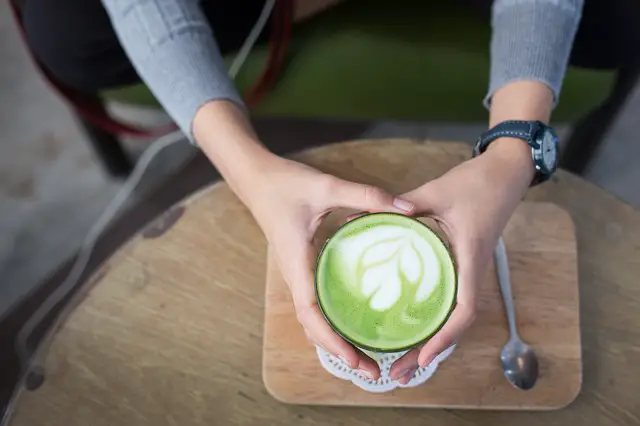
However, it is important to note that matcha tea does contain caffeine, which can interfere with sleep if consumed in large amounts or too close to bedtime. You should limit your intake of matcha tea in the evening to avoid disrupting your sleep.
Best Time to Avoid
It is recommended to avoid drinking matcha tea within 3-4 hours of bedtime. This allows enough time for the caffeine to be metabolized, so it does not interfere with your sleep. If you are sensitive to caffeine, you may want to avoid drinking matcha tea in the evening altogether.
In summary, matcha tea may have a positive effect on sleep quality due to its L-theanine content. However, you should be mindful of your caffeine intake and avoid drinking matcha tea too close to bedtime.
Matcha Preparation Tips
Matcha tea is a unique beverage that requires a specific preparation method to unlock its full flavor and health benefits. Here are some tips to help you prepare your matcha tea correctly.
Traditional Method
The traditional method of preparing matcha tea involves using a bamboo whisk and a special bowl called a chawan. Here are the steps to follow:
- Heat water to about 175°F/80°C. Boiling water can burn the delicate matcha powder and make the tea taste bitter.
- Sift a generous teaspoon (about 2 grams) of matcha into your chawan, ensuring it is a fine powder.
- Pour a small amount of hot water into the chawan and use the bamboo whisk to mix the matcha powder and water into a paste. This helps to dissolve the powder and prevent clumps.
- Add more hot water to the chawan and whisk the mixture vigorously in a zigzag motion until the tea becomes frothy and smooth.
- Enjoy your matcha tea immediately.
Modern Preparations
If you don’t have a chawan or bamboo whisk, you can still enjoy matcha tea using modern preparation methods. Here are some options:
- Use a regular tea cup or mug instead of a chawan.
- Use a handheld electric frother or a blender to mix the matcha powder and water.
- Use a matcha shaker bottle to mix the matcha powder and water.
No matter which method you choose, it’s important to use high-quality matcha powder to ensure the best flavor and health benefits. Look for matcha that is bright green in color and has a smooth, velvety texture. Avoid matcha that is brown or yellow, as this indicates that it is old or of poor quality.
By following these matcha preparation tips, you can enjoy a delicious and healthy cup of matcha tea at any time of the day.
Frequently Asked Questions
Dietary Considerations
If you have dietary restrictions or concerns, you may wonder if matcha tea is suitable for you. Matcha is a type of green tea, so it is generally considered safe for most people. However, it does contain caffeine, so if you are sensitive to caffeine or have a medical condition that requires you to avoid it, you should consult your doctor before drinking matcha tea.
Matcha tea is also high in antioxidants, which can be beneficial for your health. However, if you are taking medication or have a medical condition that requires you to limit your intake of antioxidants, you should talk to your doctor before drinking matcha tea.
Matcha vs. Other Teas
You may be wondering how matcha tea compares to other types of tea. Matcha is made from ground green tea leaves, while other types of tea are made from steeped tea leaves. This means that matcha tea is more concentrated than other types of tea and contains more caffeine and antioxidants.
Matcha tea also has a unique flavor that is different from other types of tea. It has a slightly bitter taste and a grassy, vegetal flavor that some people find appealing.
Overall, matcha tea is a healthy and delicious beverage that can be enjoyed at any time of day. However, if you have concerns about caffeine or antioxidants, or if you are unsure if matcha tea is suitable for you, you should consult your doctor before drinking it.

Scott is the founder of TeaMinded. He enjoys tasting and discovering teas from across the globe, with green teas and ceremonial matcha from Japan being among his favorites. He’s grateful to be immersed in the tea community, always learning and sharing along the journey.

